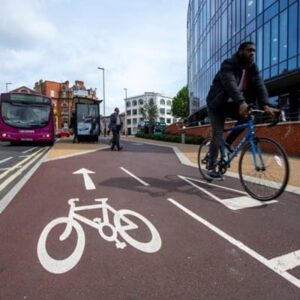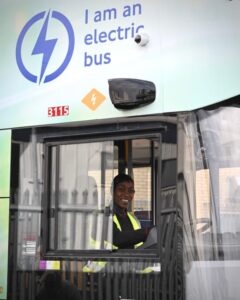Bus numbers have risen in Nottingham- with almost three quarters of public transport journeys in the city now made on its services.
David Astill, NCT’s managing director, says each year around 64.4 million journeys are made on public transport in the Greater Nottingham area, which includes the city and surrounding towns and villages such as Beeston, Arnold, Ruddington and West Bridgford, reports Notts TV.
During a Companies Governance Executive Committee meeting on January 16, Mr Astill said passenger numbers had almost returned to pre-pandemic levels, having plummeted to just 10 per cent at its height. “Thanks to the comprehensive network we provide, we are able to boast just about the highest bus use in England,” he said. “The good news is patronage is returning. He peaks have returned. People are returning to the office, are returning to university lectures and so forth, so that is very encouraging.
“At the time of putting this business plan together, we are around about 90 per cent of pre-Covid ridership. Many operators around the country are still reporting a recovery rate of about 80 per cent, lower than that for some reason in Wales, but Nottingham can be pleased we are at the top of the curve in terms of bus ridership recovery.”
Difficulty in recruiting and retaining drivers following the “great resignation”, which caused huge staffing problems in workforces during the pandemic, has also improved.
Councillors were told 131 new drivers were recruited in the last financial year, and NCT now has a workforce of around 1,100 staff. Almost 41 million of the trips are made on NCT buses.
Around 60 drivers are now also working part-time to help reduce turnover further.
“In the last two years I’ve been telling you how difficult it has been to recruit drivers,” he added.
“That is improving. We’ve made a significant improvement on where we were back in April last year. We are in a very comfortable situation with drivers compared to two years ago.”
Cllr Audra Wynter (Lab), the council’s deputy leader, questioned whether passenger levels would ever return to pre-pandemic levels. “I think it is all positive news,” she said. “My question is, is there anything you can do to actually get [patronage] back to where it was?”
Mr Astill explained student passenger numbers had still not returned to pre-pandemic levels and may well have become a “terminal” issue.
“We know there are some pinch-points in the network where we are ready to put more services and more capacity in, and that may well get us over 90 per cent,” he said.
“We probably only get two-thirds of students. Every year we are led to believe things are back to normal at universities, but we think there are still a high number of students attending lectures online. So that may have gone more terminal.”
Mr Askill also says he does not believe the £2 capped bus fare scheme, which is being subsidised by the Government until December 2024, has led to an increase in passenger numbers.
“We don’t think in observation the £2 fare has generated them, it has certainly transferred people from longer-term tickets, in particular day tickets, because two singles are now cheaper,” he added.
“There are routes around the country that have seen huge generation. Our colleagues at Transdev, who run what is called Coastliner between Leeds, Scarborough, during the summer – received patronage [generation] rates of 30 per cent.
“We haven’t generated those, we are a very compact urban network where people are going to school and work. [But] in itself it is welcome, it helps people with the cost of living.”























